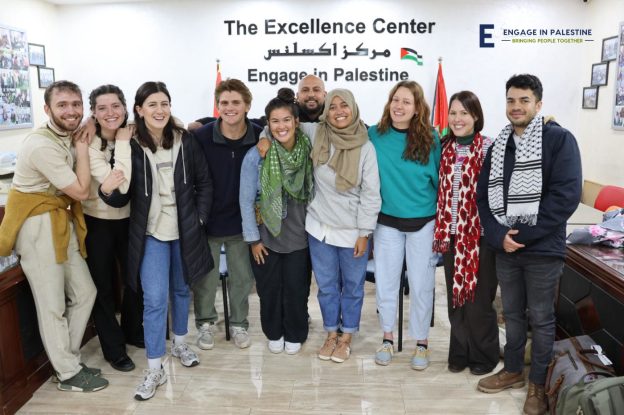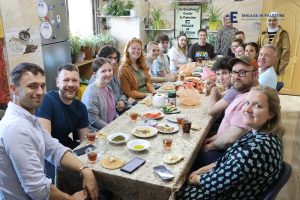Learning and Engaging with Palestinian Arabic: Embarking on a journey to learn Palestinian Arabic is not just about acquiring a new language; it’s about immersing yourself in a vibrant culture, connecting with diverse Palestinian communities, and unlocking doors to a deeper understanding of the Middle East. Palestine, with its ancient ruins, bustling markets, and breathtaking natural wonders, offers a tapestry of experiences waiting to be discovered.
Mastering Palestinian Arabic isn’t merely about learning words and phrases; it’s about gaining insight into the values, traditions, and way of life that shape the fabric of Palestinian society. It’s about engaging with locals in their native language, sharing stories, exchanging ideas, and forging connections that transcend linguistic barriers.
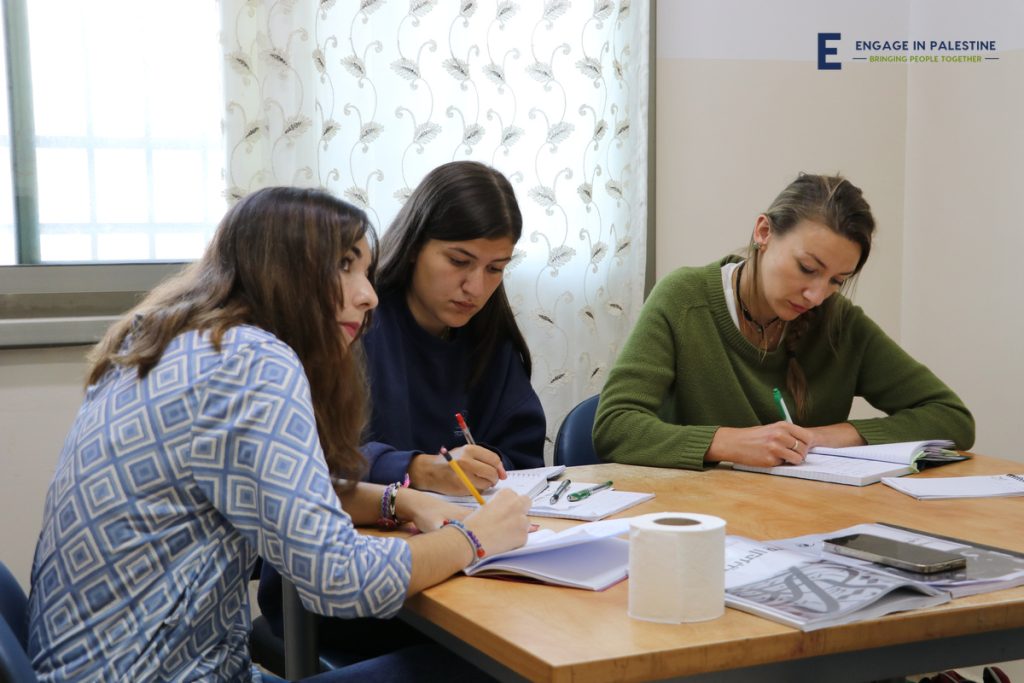
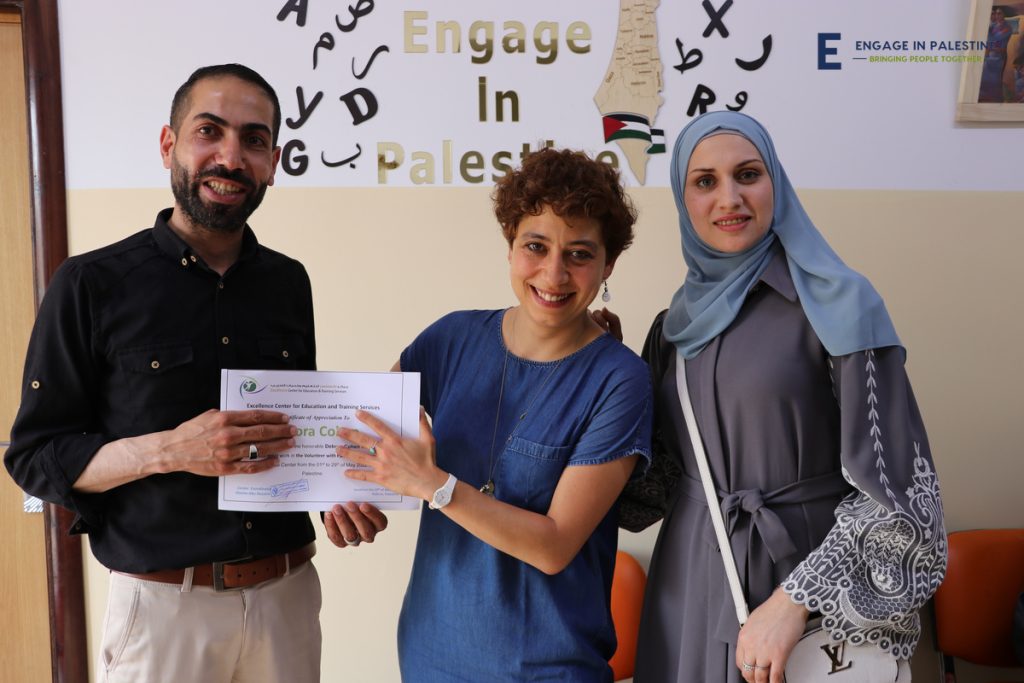
Moreover, learning Palestinian Arabic opens up avenues for meaningful interaction and collaboration with Palestinian from all walks of life. Whether you’re a traveler seeking authentic experiences, an entrepreneur looking to establish connections in the region, or a student eager to explore academic opportunities, proficiency in Palestinian Arabic equips you with the language skills and cultural understanding necessary to navigate the complexities of Palestinian society with confidence and respect.
Table of Contents
The Palestinian Dialect
The Palestinian dialect (اللهجة الفلسطينية) is the everyday spoken language and will be understood by the Palestinian people. Some of the words in Modern Standard Arabic are not used in day-to-day conversation and some people may not understand the more formal language.
| Native speakers | 13 Million Palestinians |
| Language family | Afro-Asiatic > Semitic |
| Dialects | Fellahi; Madani |
| Writing system | Arabic alphabet |
| Dialect varieties | Intelligible varieties of Levantine Arabic |
Palestinian Arabic is closely related to Modern Standard Arabic
Palestinian Arabic is the predominant dialect spoken by Palestinians residing in Palestine, Israel, and Palestinian diaspora communities. Acquiring proficiency in this spoken dialect can significantly facilitate communication and interaction with Palestinians in their daily lives when traveling in Palestine.
The Arabic dialects spoken in Palestine display a significant diversity rather than forming a single homogeneous linguistic unit. This diversity arises from various typological groupings shaped by geographical, historical, and socioeconomic factors. In two comparative studies of dialects, Palestinian Arabic emerged as the closest to Modern Standard Arabic, with the dialect spoken in the Gaza Strip being the primary exemplar.
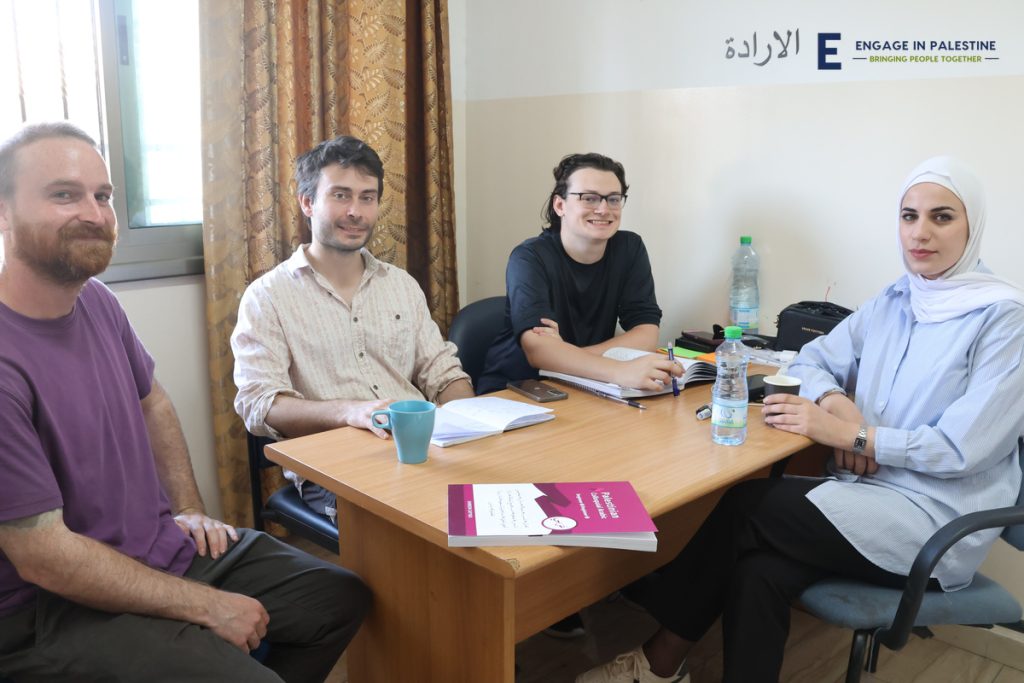
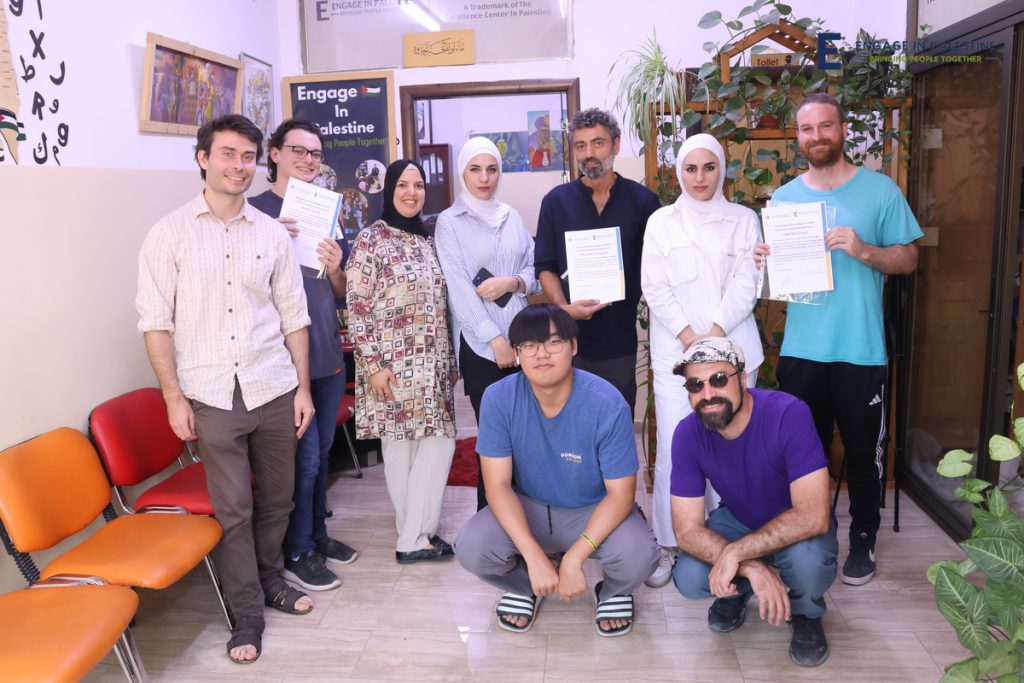
In essence, mastering Palestinian Arabic is a gateway to a world of discovery, connection, and cultural enrichment. It’s an invitation to embark on a transformative journey of exploration and understanding, where language serves as the bridge that brings people together, fosters mutual respect, and celebrates the beauty of diversity. So, as you embark on this linguistic adventure, embrace the opportunity to not only learn a language but to immerse yourself in a rich tapestry of Palestinian culture, history, and human connection that Palestine has to offer.
1. Learn Arabic Alphabet
The Palestinian Arabic alphabet, commonly known as the Arabic abjad, is crafted for writing the Levantine Arabic language spoken in regions like Jordan, Lebanon, and Syria. It aligns with the standard Arabic script, recognized for its right-to-left cursive style, and encompasses 28 letters, with certain letters showcasing contextual variations. Click on this link to explore a detailed overview of the alphabet’s usage and pronunciation in different positions within Arabic words.
2. Explore Learning Resources
Start by researching and collecting resources designed for learning Palestinian Arabic. Seek out textbooks, online courses, language learning apps, and audio resources that specifically target Levantine Arabic, including Palestinian dialects. Resources such as “Colloquial Palestinian Arabic: An Introduction to the Spoken Dialect” by Nasser Isleem or “Conversational Arabic Quick and Easy” by Yatir Nitzany provide structured lessons tailored to Palestinian Arabic.
Additionally, online platforms like “ArabicPod101” offer comprehensive Arabic lessons along with cultural insights to enhance your learning experience.
3. Watch Videos on YouTube
Watching Palestinian Arabic videos on YouTube is an excellent method for learning Arabic. Channels such as “Learning Palestinian Arabic” and “Learn Arabic with Maha” offer valuable resources.
4. Engage in Conversational Practice
Practice speaking with native speakers as much as possible. Seek out opportunities to converse with Palestinians, either in person or through language exchange programs online.
Joining language exchange meetups, finding conversation partners on social media or language exchange apps, and participating in online forums can all provide valuable opportunities to practice speaking, listening, and understanding Palestinian Arabic in real-life contexts.
5. Immerse Yourself in the Language
Immerse yourself in Palestinian Arabic by exploring authentic cultural materials. Enjoy the soulful melodies of Palestinian singers like Mohammed Assaf and delve into thought-provoking films such as “Gaza Mon Amour” and “Lemon Tree.”
Tune in to Palestinian radio stations like Yaboos.fm for everyday conversations in Arabic. Expand your vocabulary and understanding by reading newspapers like Al-Quds and browsing websites like Maannews.net. Through these experiences, you’ll deepen your language skills and gain valuable insights into Palestinian culture and society.
6. Familiarise Yourself with the Arabic Script
While spoken communication is primary in learning Palestinian Arabic, gaining proficiency in reading and writing the Arabic script can greatly enhance your language skills. Invest time in learning the Arabic alphabet, practicing writing Arabic letters, and reading simple texts.
Apps like Duolingo, Memrise, and Mondly offer Arabic language courses that include Palestinian Arabic lessons on the Arabic script. These apps provide interactive exercises and quizzes to help you practice writing Arabic letters.
7. Stay Motivated and Consistent
Learning a new language requires dedication and persistence. Set realistic goals for your Arabic language learning journey and establish a regular study routine. Consistency is key, so make a habit of practicing Palestinian Arabic daily, even if only for a short time.
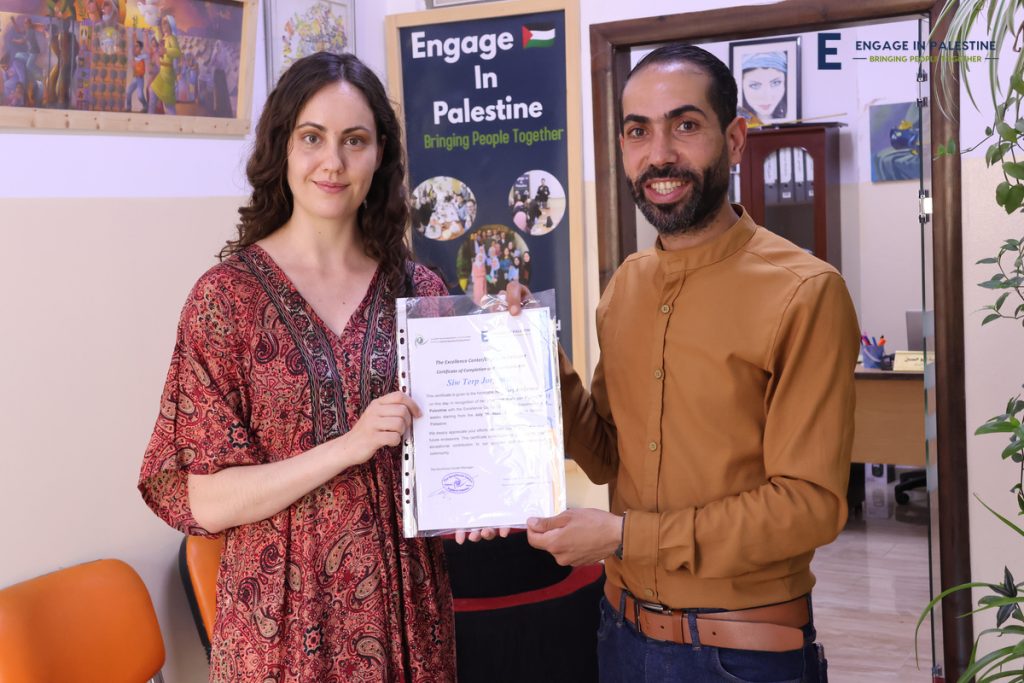
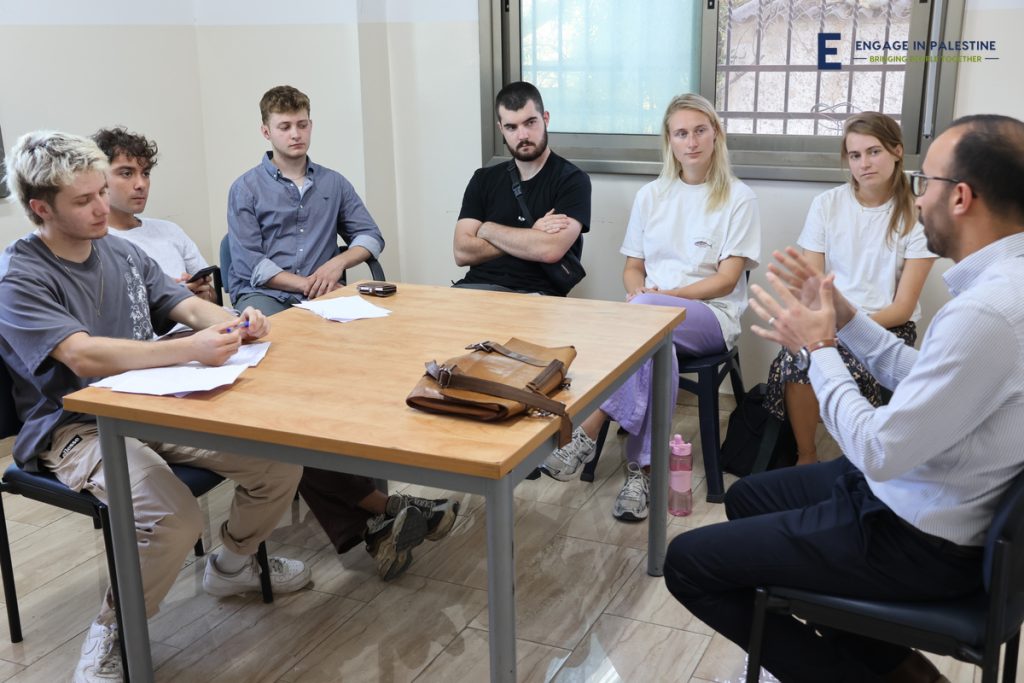
Celebrate your progress along the way and stay motivated by focusing on your achievements and the benefits of mastering the language, whether it’s for travel, work, or personal enrichment. Remember that language learning is a gradual process, and every step you take brings you closer to fluency.
In Conclusion
Mastering Palestinian Arabic offers far more than just linguistic proficiency—it opens doors to a deeper understanding of Palestinian culture, history, and identity. Through dedication to learning, whether through immersive experiences, structured courses, or online resources, learners not only acquire language skills but also gain insight into the rich tapestry of Palestinian society.
By engaging with Palestinian Arabic, learners forge connections with native speakers, access authentic cultural content, and navigate the complexities of the region with greater empathy and understanding. Ultimately, the journey to mastering Palestinian Arabic is a rewarding endeavor that fosters not only linguistic fluency but also cultural appreciation and meaningful cross-cultural exchange.
Related Arabic Programs
Contact Us if You Are Interested in Learning and Engaging with Palestinian Arabic
Should you have any questions, please do not hesitate to contact us at:
WhatsApp:+972 599 479 880
Website: https://ecpalestine.org/
EC Website: https://excellencenter.org/
Instagram: https://www.instagram.com/excellence.center
Facebook page: https://www.facebook.com/ExcellenceCenter
Tags: Learn Palestinian Arabic online, Palestinian Arabic course, Palestinian Arabic for beginners, Palestinian Arabic language lessons, Palestinian Arabic online classes
